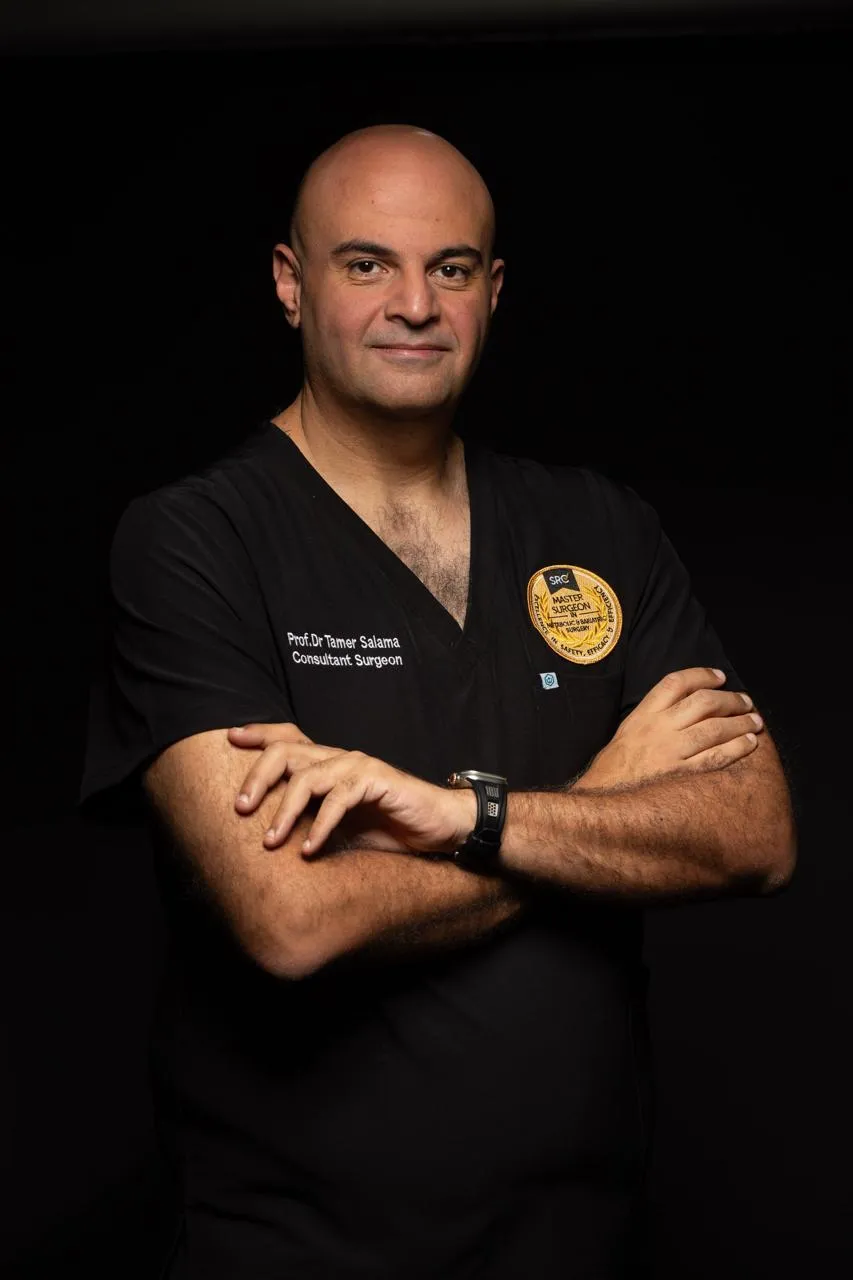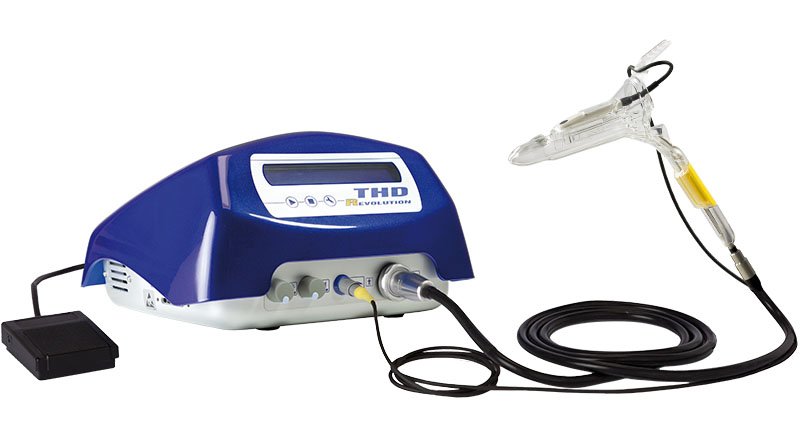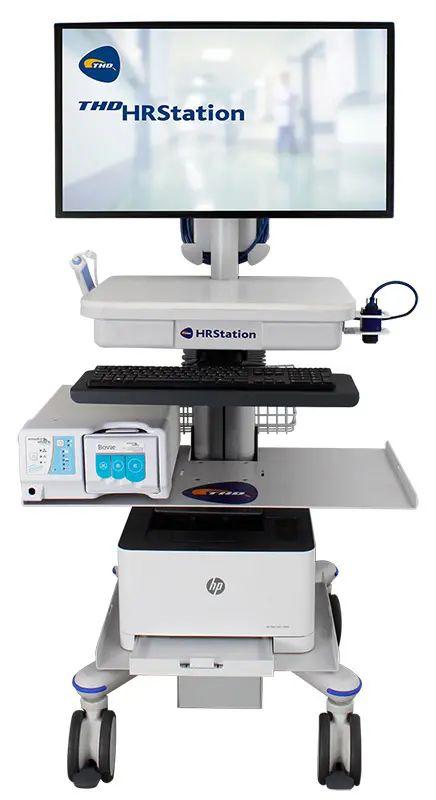Hemorrhoids: A Modern Approach to a Common Problem
Hemorrhoids are among the most common anorectal conditions, affecting millions worldwide and often significantly impacting a patient’s quality of life. With the advancement of medical science and the emergence of innovative techniques, hemorrhoid surgery has become safer, more effective, and much faster in recovery.
Among the pioneers adopting these modern techniques and achieving impressive results in the United Arab Emirates is Dr. Tamer Saeed, Consultant in General Surgery, Bariatric Surgery, and Proctology at American German Surgical Hospital – Dubai.
What Are Hemorrhoids?
Hemorrhoids are swollen blood vessels located in the anus and lower rectum. They may be internal or external and result from increased pressure in the area, leading to stretched veins, bleeding, pain, or even prolapse in advanced cases.

Stages of Hemorrhoids
Hemorrhoids are classified into four distinct grades based on their size and severity. Understanding these stages is key to proper diagnosis and treatment.
-
Grade I
Internal swelling, not visible externally.
No prolapse (does not protrude).
May cause bleeding with straining.
-
Grade II
Prolapses during straining or bowel movements.
Reduces spontaneously (returns inside on its own).
-
Grade III
Prolapses with straining and requires manual reduction.
Must be pushed back in by hand.
-
Grade IV
Permanently prolapsed and cannot be pushed back.
Carries a high risk of thrombosis (blood clots) and significant pain.
Early diagnosis and appropriate treatment are crucial to prevent complications. Don’t wait—get assessed by a healthcare professional.
Causes of Hemorrhoids
- Chronic constipation or recurrent diarrhea
- Prolonged sitting, especially on the toilet
- Pregnancy and childbirth
- Obesity and excessive weight
- Weak pelvic floor muscles due to aging
- Low fiber intake and inadequate hydration
Complications of Hemorrhoids
Although hemorrhoids are not typically dangerous, neglecting treatment may result in:
- Chronic anal bleeding, which may lead to anemia
- Severe pain during bowel movements or while sitting
- Thrombosed external hemorrhoids
- Recurrent infections or anal abscesses
- Discomfort with hygiene and persistent irritation
Treatment Options
Treatment ranges from lifestyle modifications and fiber supplements to topical medications. Surgical intervention is reserved for more advanced cases—this is where modern medical technology plays a key role in providing effective, pain-free solutions.
Modern Techniques in Diagnosis and Treatment
THD Technique – A Revolutionary Solution for Hemorrhoid Treatment
THD (Transanal Hemorrhoidal Dearterialization) is a minimally invasive, non-excisional procedure used to treat internal hemorrhoids, especially Grade II to III — and sometimes Grade IV with prolapse. It is performed under Doppler ultrasound guidance to precisely locate and ligate the terminal branches of the superior rectal artery, which supply the hemorrhoids.
How THD Works
Doppler-Guided Artery Detection
A specialized proctoscope with a Doppler probe identifies arterial branches feeding the hemorrhoids.
Targeted Ligation (Dearterialization)
These arteries are tied off with absorbable sutures, reducing blood flow to the hemorrhoidal tissue.
Mucopexy (Optional Step)
In case of prolapse, the same sutures are used to lift and reposition the hemorrhoidal cushions back into place (mucosal lifting/staple-free mucopexy).
Why THD Is Accurate and Effective
Anatomical Precision
Doppler ultrasound ensures ligation of exact arterial feeders.
Preserves Tissue
No cutting or removal of tissue → less pain, faster recovery, minimal risk of anal stenosis or incontinence.
Functional Restoration
It restores normal venous drainage and cushion position without damaging the sphincter.
Clinically Validated
Endorsed in many colorectal surgical guidelines with high success and patient satisfaction rates.
One of the most advanced surgical methods globally for hemorrhoid treatment is the THD (Transanal Hemorrhoidal Dearterialization) technique. This technique is performed with high precision by Dr. Tamer Saeed at American German Surgical Hospital – Dubai.
Advantages of the THD Technique:
- No tissue removal: It involves tying off the arteries supplying blood to the hemorrhoids using Doppler guidance.
- No incisions or cuts to the skin.
- Nearly pain-free—most patients do not require strong painkillers post-operation.
- No hospital stay needed: Patients can return home the same day or the next morning.
- Return to normal activity within 24 to 48 hours.
- Extremely low risk of complications.
- Long-lasting results with minimal risk of recurrence.

HR STATION – A Leap in Anal Disease Diagnosis
In addition to therapeutic advancements, Dr. Tamer Saeed leads the use of the HR STATION, the most advanced diagnostic technology for anal diseases in the Middle East.
This diagnostic platform represents a breakthrough in the precise and painless assessment of anorectal conditions, especially hemorrhoids.
Key Features of the HR STATION:
- Extremely accurate evaluation of the anal canal.
- Live 4K FULL HD imaging with IN-SCOPE technology for clear visualization.
- Helps the surgeon quickly and efficiently decide the best treatment.
- Non-invasive and painless; can be done in the clinic without anesthesia.

A Leader in Excellence
With over 25 years of surgical experience, Dr. Tamer Saeed is a member of both the Royal College of Surgeons (UK) and the American College of Surgeons. He has led numerous Centers of Excellence across the region and currently heads the Proctology and Laparoscopic Surgery Unit at Saudi German Hospital – Dubai, which has become a leading destination for patients seeking advanced, pain-free diagnostic and surgical care.
Final Word
Hemorrhoids are not the end of the world—but they can lead to prolonged suffering if left untreated. With breakthrough techniques like THD and diagnostic tools like HR STATION, combined with the expertise of a surgeon like Dr. Tamer Saeed, it is now possible to eliminate this condition quickly, safely, and without interrupting your daily life.
HR STATION
قفزة نوعية في تشخيص أمراض الشرج
General Questions about Hemorrhoids
Is bleeding from hemorrhoids dangerous?
Usually, the bleeding is minor and not serious. However, it may indicate another issue such as an anal fissure or a colon condition, so it’s important to consult a doctor for accurate diagnosis.
🔷 How are hemorrhoids diagnosed?
- Through clinical examination.
- Anoscopy or endoanal ultrasound, or using the advanced HR Station to determine the type and grade of hemorrhoids.
🔷 Hemorrhoid Prevention Tips
- Drink plenty of fluids, especially water.
- Eat soluble fiber to keep stool soft and prevent constipation.
- Include fruits and vegetables with every meal.
- Switch to high-fiber breakfast cereals or bran-based options.
- Avoid spicy foods as they worsen pain during bowel movements.
- Replace white rice, pasta, bulgur, or quinoa with fiber-rich meals.
- Incorporate lentils, nuts, seeds, and beans for added fiber.
🔷 Can Hemorrhoids Be Treated Without Surgery?
Yes, in mild cases they can be managed by:
- Lifestyle changes
- A high-fiber diet
- Topical medications or suppositories
- Warm sitz baths
🔷 When Is Surgery Necessary?
Surgery may be needed in cases of:
- Recurrent bleeding
- Persistent pain or prolapsed hemorrhoids
- Failure of conservative treatment
- Complications like thrombosis or infection
🔷 Is Hemorrhoid Surgery Painful?
Modern techniques like THD (Transanal Hemorrhoidal Dearterialization) involve no external cuts and are nearly painless, allowing patients to return quickly to normal life.
🔷 How Long Is the Recovery After Surgery?
- Recovery time varies by procedure, generally between 3 to 7 days.
- With modern techniques, many patients return to work the next day.
🔷 Post-Treatment Advice
- Prevent constipation.
- Drink 2–3 liters of water daily.
- Eat vegetables and fiber-rich foods.
- Stay physically active and walk regularly.
- Avoid long bathroom sitting sessions.
- Follow the doctor’s instructions strictly.
🔷 Can Hemorrhoids Return After Treatment?
Yes, if lifestyle habits don’t change, or if chronic issues like constipation or prolonged sitting persist.
Surgical Instructions
📝 Preoperative Instructions
- 1. Evaluation & Preparation: A thorough physical exam, blood tests, and sometimes anoscopy.
- 2. Dietary Guidelines: Fast completely for 6–8 hours before surgery. A fiber-rich diet is recommended in the days leading up to it.
- 3. Lifestyle & Medications: Stop smoking 2 weeks prior. Discontinue blood thinners as advised. Inform your doctor of all medications.
✅ Postoperative Instructions
- 1. Wound Care & Pain Management: Take prescribed medications. Use warm sitz baths. Apply topical creams if prescribed.
- 2. Diet: High-fiber foods, drink 2–3 liters of water daily. Avoid spicy or constipating foods.
- 3. Bowel Habits: Avoid straining. Use mild stool softeners. Clean gently with warm water.
- 4. Activity & Mobility: Light walking is encouraged. Avoid heavy lifting. Return to work in 3-7 days depending on the procedure.
- 5. Warning Signs: Contact your doctor for heavy bleeding, high fever, uncontrolled pain, or difficulty urinating/defecating.
Post-Surgery Diet
🟥 Forbidden Foods & Drinks
Avoid for 2–3 weeks:
- Foods causing constipation: White rice, white bread, fried potatoes, pastries, red meat.
- Irritating foods: Spicy foods, rich tomato sauces, pickles.
- Dehydrating drinks/foods: Coffee, strong tea, carbonated drinks, alcohol, chocolate.
- Foods impairing healing: Refined sugars, processed meats, canned foods.
🟩 Recommended Foods
✅ First 3 Days (Liquid-Soft): Broth, fresh juices, water, yogurt, jelly.
✅ After Day 4 (Fiber-Rich):
- Vegetables: Zucchini, carrots, spinach, salad.
- Fruits: Figs, prunes, kiwi, apples, pears.
- Whole grains: Whole wheat bread, oats, brown rice.
- Light protein: Chicken breast, grilled fish, boiled eggs.
- Healthy fats: Olive oil, avocado, raw nuts.
📝 Important Dietary Notes:
- Don’t eat until you’re overly full.
- Chew food thoroughly.
- Split meals into 5 small portions.
- Use mild laxatives as advised.
Contact Us
For Appointments & Inquiries
Location: Saudi German Hospital, Dubai, UAE
Phone: +971-58-675-8981

